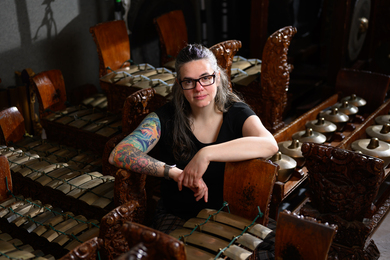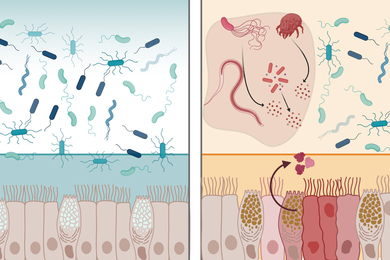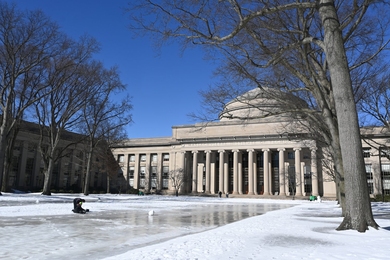More than 150 students and instructors from 13 universities across North America and Europe will convene at MIT this weekend to unveil their biological designs at the 2005 International Genetically Engineered Machine (iGEM) competition.
The teams worked all summer to design and build engineered biological systems using standard interchangeable biological parts called BioBricks. BioBricks, originated at MIT, are made of biological materials that work as molecules inside living organisms.
The competition is part of the new field of synthetic biology, which involves taking apart the stuff of life and refining it so it can be reused easily in potentially useful ways. Drew Endy, assistant professor of biological engineering, said that the successful development of foundational technologies such as BioBricks will make it much easier to engineer biological systems.
MIT senior research scientist Tom Knight, originator of the BioBricks system, likened BioBricks to standardized screw threads -- a fundamental advance, now taken for granted, in mechanical systems engineering.
"The goal of iGEM is to work with students to learn how to develop biology as a technology that can be used to engineer living systems that do useful things like process information and chemicals, construct materials and produce energy," said MIT principal research engineer Randy Rettberg, director of the MIT Registry of Standard Biological Parts and lead organizer of the 2005 iGEM competition.
By drawing on biological knowledge, engineering design and production principles, researchers can construct synthetic biological systems to achieve novel applications with unprecedented power and efficiency. Designs at last year's iGEM competition ranged from yeast programmed to detect caffeine levels to a bacterial photographic film that captures extremely high-resolution images.
The research, besides leading to new technologies in health, energy, the environment and new materials, could lead to a greater fundamental understanding of how life works and how to use its building blocks --DNA, proteins and cells-- more effectively.
The schools participating in iGEM are MIT, Berkeley, Caltech, University of Cambridge (U.K.), Davidson College, ETH Zurich (Swiss Federal Institute of Technology), Harvard, University of Oklahoma, Penn State, Princeton, University of Toronto, University of California at San Francisco and University of Texas at Austin. The competition was launched at MIT last year with five schools and was based on an earlier MIT course. This year's competition involves schools from overseas for the first time.
The teams were challenged to design and test a simple biological system made of BioBricks and operate it in living bacterial cells. The teams will present their results at a jamboree on Saturday, Nov. 5, from 9 a.m. to 5 p.m. in the Stata Center, Room 32-123. Each team is allotted half an hour for its presentation. The awards ceremony will be at 10 a.m. Sunday, Nov. 6.
The event, which also includes a discussion of the social implications of this new technology, is sponsored by Microsoft/MIT iCampus.





